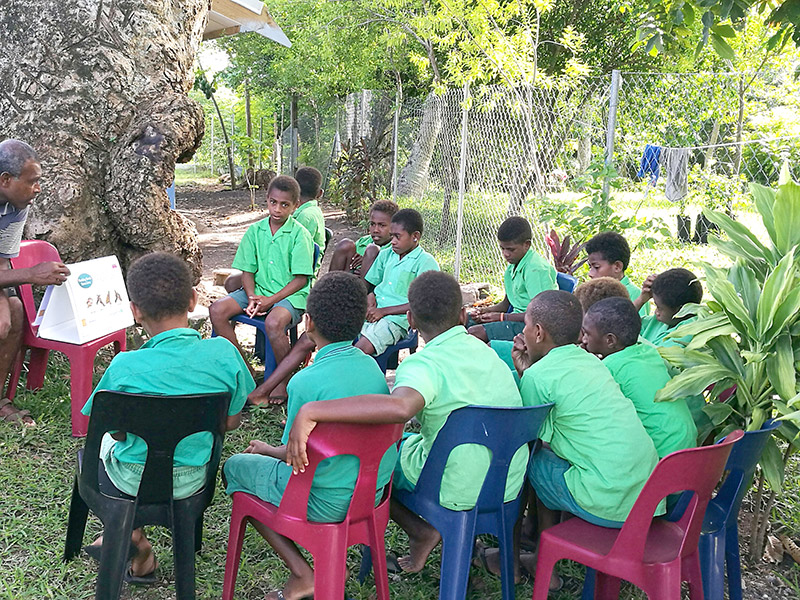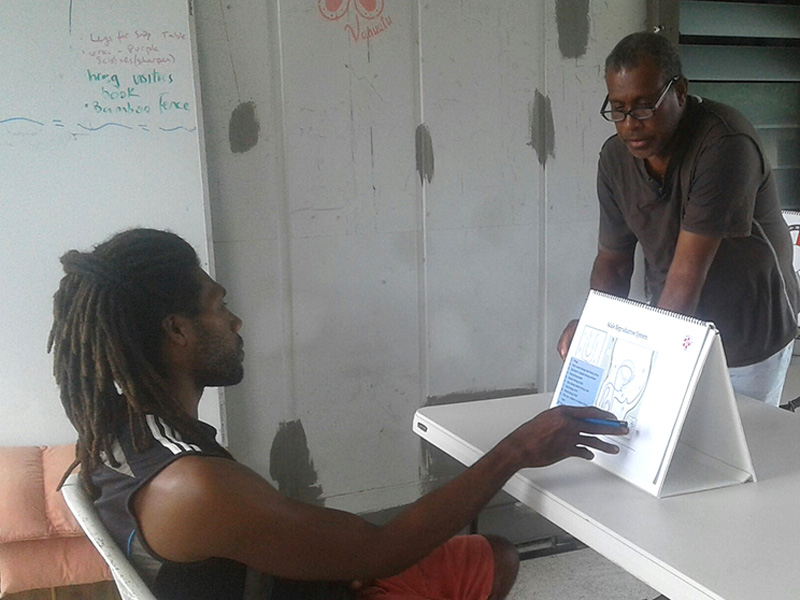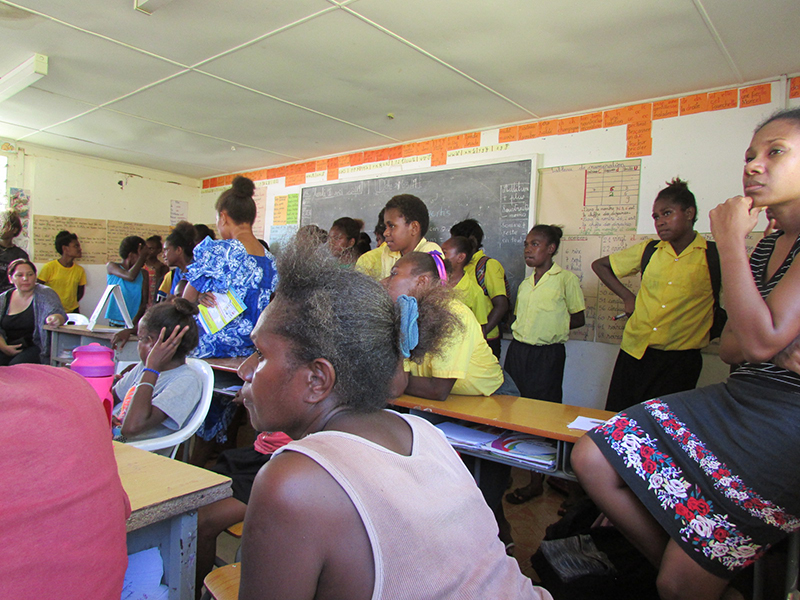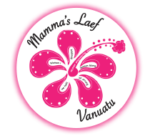Mamma’s Laef Vanuatu are based in a village, on a small island in the archipelago of Vanuatu in the South Pacific ocean.
We are locally owned by ni Vanuatu couple, Jack and Mary Kalsrap.
Operating as a social enterprise and was supported by Mamma’s Laef Charitable Trust, New Zealand, up until 30.6.2022 when the Charitable Trust closed, due to completing its main goals. Of course the work of Mamma’s Laef Vanuatu continues …
We sew reusable menstrual pads and distribute those pads to women and girls across the islands and when we are able to, we provide menstrual health awareness. That is a vital part of what we do, as we are passionate about supporting schools and communities to breakdown taboo around menstruation.
We start conversation about menstruation
We have increased incomes in our community, by creating this enterprise. Taking an holistic approach, we are innovative, exploring other reusable hygiene products to support the health and wellbeing of ni Vanuatu.
Providing a locally made, eco-friendly alternative to disposable (plastic) hygiene products is one way of increasing economic empowerment.
Impact
Mamma’s Laef delivers positive impact in Vanuatu on several levels:
- Creating an enterprise – which gives the team opportunities to develop long term sustainable business skills
- Creating products which local customers want
- Creating products which are environmentally friendly
- Creating a product that promotes good practice in hygiene
- Providing education on a topic that can be challenging to talk about and challenging to navigate around local custom taboo.
Vanuatu has a population of 272,000; with the majority of people living on remote islands, living a subsistence lifestyle. 37% of the population is under 15 years of age, and 20% aged between 15 and 24.
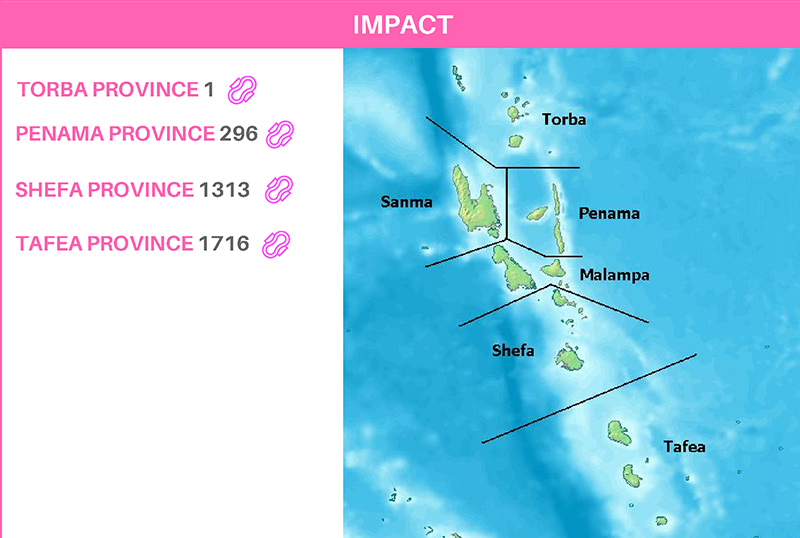
Impact statistics – to date
How we distribute reusable pads
We sell our packs to customers. Those customers might be in-country NGO’s, in-country Government organsiations, private donors from inside or outside of Vanuatu and of course – the end user of the products.
Painting the picture
Vanuatu is a developing nation and life there can be harsh for some.
Imagine a young girl who has just started to menstruate? She has no idea what’s happening to her body or what she should do about it?
What if that same girl was living far away from her home, on another Vanuatu island, at a boarding school. She is a long way from her mother or closest female relatives. She is unlikely to have access to a phone to call home. What is she going to do?
This can be the situation for young girls in Vanuatu.
In Vanuatu, access to menstrual products is limited. Commonly, rags are used each month. What’s the problem with that? Unfortunately, rags may be shared between females in the same household. Shop bought menstrual pads are not only unaffordable for some, but in rural areas, small shops have limited supplies. Combined with many cultural taboos surrounding menstruation (or sik mun as it is known); navigating your way around this natural bodily function can be a real challenge for women of all ages in Vanuatu.
Imagine life in Vanuatu if all women had access to quality and clean menstrual products? Products which are sustainable, environmentally friendly and being made in their own country, therefore increasing economic outcomes too? Wouldn’t that be a sensible approach?
Imagine if women had the opportunity to educate themselves about menstrual health? What difference would that make in that woman’s life?
As a locally owned and operated social enterprise business, we sew reusable menstrual pads, then distribute to schools and communities. We start a conversation with girls and women about sik mun, encouraging women of all ages to break down the taboo that surrounds menstruation. We are always challenging ourselves and are now taking our message to men too. We’ve discovered that men in Vanuatu do want to talk about sik mun and because we can present in a sensitive and appropriate way, those men will help us to achieve our Mission.
Mamma’s Laef washable sanitary pads were distributed through CARE Vanuatu.
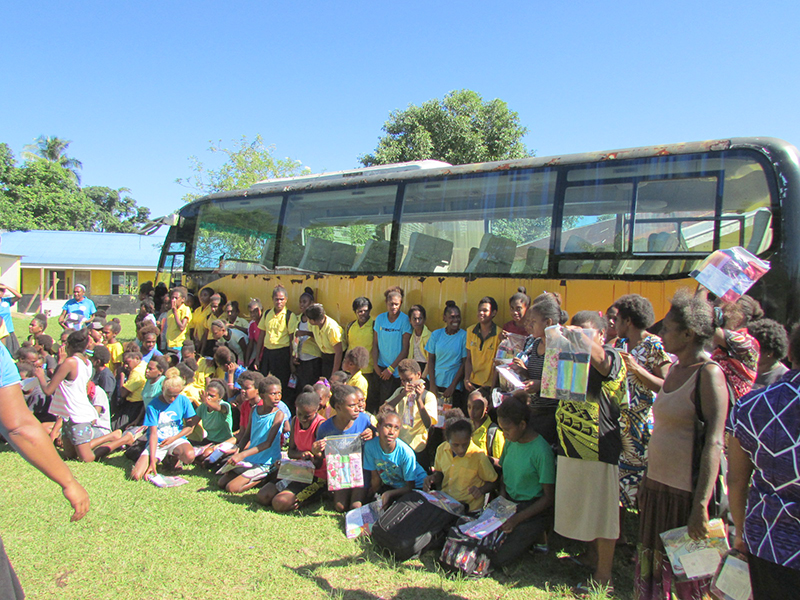
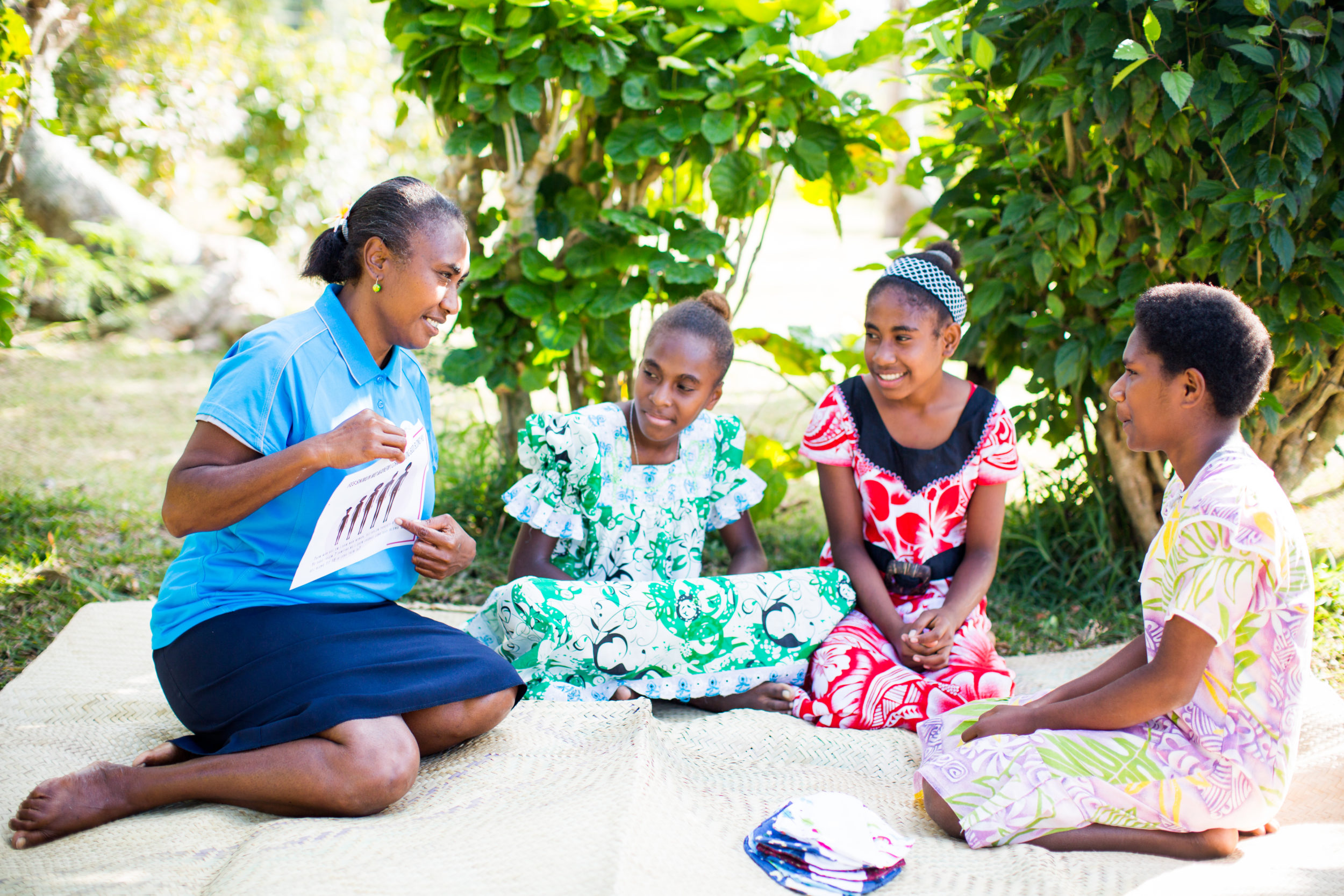
Together we can make a difference.
What's Next For Mamma's Laef

Secure funding for island-wide distribution and awareness.

Secure long-term funding to support continued training for Vanuatu management team.

Supply kits to first time mothers, giving birth in hospital.

Further develop men and boys outreach.
Where are we now?
We are in this for the long haul. We have skin in the game. This is our home.
As a result of our success in being recognised through the Frontier Innovators Programme, funded by the Department of Foreign Affairs and Trade (Australia) – support was provided to Mamma’s Laef to establish itself with legal entities in both New Zealand (a Charitable Trust) and now together we are following our Vision of…
Supporting women to control their future.
By following our Mission Statement…
Mamma’s Laef empowers women by providing sustainable menstrual products, creating social enterprise, and breaking taboos about menstruation.
